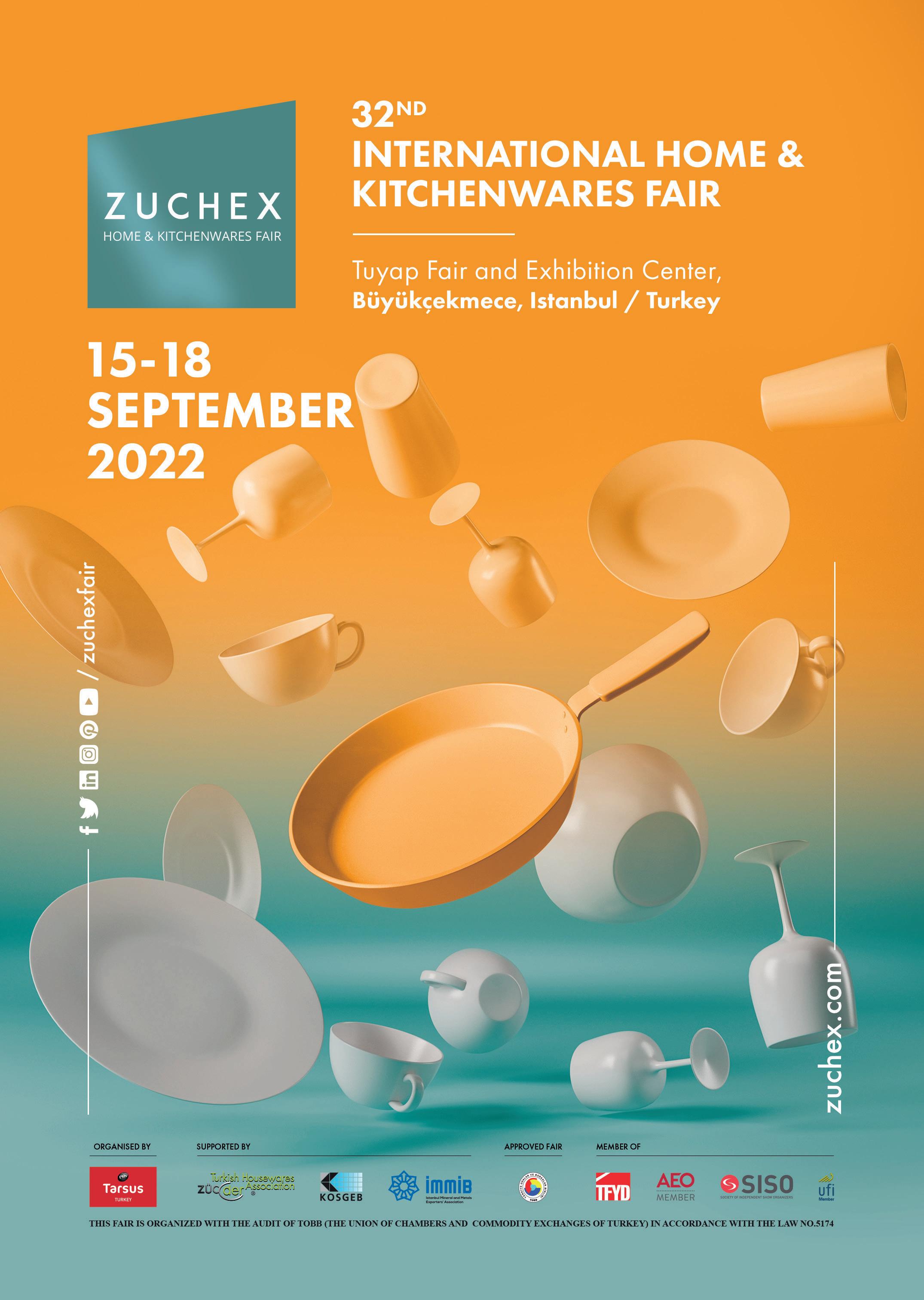
4 minute read
Column
What can we expect of 2022?
The positives and potential negatives of the year ahead are discussed by Will Jones, chief operating officer at BHETA… About BHETA
Ayear ago, as we were making predictions for the new year, I do not imagine many of us realised just how similar 2021 would prove to its predecessor, both in terms of the challenges and the opportunities. While we were probably less shocked by the concept of a pandemic and the implications for managing a business than previously, there were many other issues to deal with such as supply chain challenges and the cost of freight. It was fortunate therefore – and somewhat ironic, given the product availability situation – that the positives of 2020 also continued in 2021, namely, the consumer’s continued interest in and desire to undertake homebased projects and buy more product accordingly. The upshot was that most housewares and small domestic electricals suppliers who are members of BHETA had a successful year overall, and the sheer joy of Exclusively with its sense of industry togetherness was wonderful to experience.
So, as we welcome 2022, are we to expect much of the same? Certainly, the practical challenges of supply shortages and punitive transport costs continue to dominate the industry with no sign of abating. We also have the uncertainty of a new variant. Difficult decisions are already being taken in respect of international exhibitions and Far-East buying trips. On the positive side, the consumer refocus on ‘home’ with the consequent surge in interest in cooking, baking and cleaning is set to continue. As an example, it’s been pleasing to note that in 2021 searches for bread-making machines went through the roof, and in BHETA’s annual member survey, around 70 per cent of supplier companies were confident about the market either continuing to increase or at least holding its current buoyancy despite the external issues existing and still to come.
Another key trend that is very much coming through and presents both opportunities and challenges is sustainability, or as trend forecasters Scarlet Opus describe it in terms of consumer engagement – Reset. At Exclusively we saw some superb examples of product developed in line with this thought process from both functional and aesthetic points of view. From a legislative perspective it is all about managing transition both sensitively and sensibly so that suppliers can move with the times. BHETA’s successful lobbying on the distinction between single use and multiple use plastic is a great example of what can be achieved.
The fact remains however is that the most immediate challenge for 2022 is that the consumer will have less money to spend as inflationary pressures work their way through.
70the percentage of supplier companies confident about the market either continuing to increase or holding its current buoyancy, according to the BHETA’s annual member survey.
The British Home Enhancement Trade Association (BHETA) is the voice of authority on everything home improvement and home enhancement, including DIY, housewares, garden, small domestic appliances and home decor. It represents £5 billion at retail and 9,000 employees and brings together manufacturers, suppliers, retailers and opinion formers to drive growth at home and abroad. For more information about retailer and supplier co-operation, contact BHETA on 0121 237 1130, or email wj@bheta.co.uk, or visit the website at www.bheta.co.uk
The government’s Covid-19 support package concluding, the end of the stamp duty holiday, and the removal of the universal credit benefits have all already impacted. Likely to be more problematic is the effect of rising inflation, especially combined with the April tax rises. The crisis over energy prices is a specific concern, with 25 energy providers collapsing since the end of the summer, affecting more than four million households. Investment bank Investec is predicting that with the energy price cap - set to be reviewed by Ofgem also in April - average household energy bills could go as high as £1,995-a-year. It goes without saying that this challenge is a ‘double whammy’ for suppliers who have their own bills to pay.
Of course, shortage of disposable income tends to work in favour of home-based experiences and member feedback suggests the hope that the now-established trajectory for home cooking, baking and entertainment enables housewares to be one of the sectors best placed to withstand the inevitable challenge. The data from BHETA’s latest member survey shows nearly 60 per cent of supplier members feeling upbeat about sales growth in 2022 and a further 29 per cent comfortable that there will be no decline. The same research reveals an appetite for expansion in the first quarter of 2022, with 53 per cent planning to ramp up their capital investment, and 38 per cent looking to take on new staff and increase R&D expenditure. There is also a view that despite the end of the stamp duty holiday, the combination of stronger buyer demand coupled with a shortage of available properties means that the housing market could well remain healthier than some have predicted.
Whatever the year brings – positive and negative, it is hugely important that the industry recognises the contribution of collective action. All suppliers and retailers need to be able to react quickly to a changed and changing world. BHETA members can keep looking at the market data, identifying emerging trends and responding in good time, placing orders early whenever appropriate. BHETA has also proved the potential of collective and coordinated lobbying on issues from taxes to freight costs. For BHETA it is all about a) providing members with up to the minute facts, b) helping adaptability with ‘how-to’ content, c) taking on the issues with government and d) continuing to enable networking opportunities.









